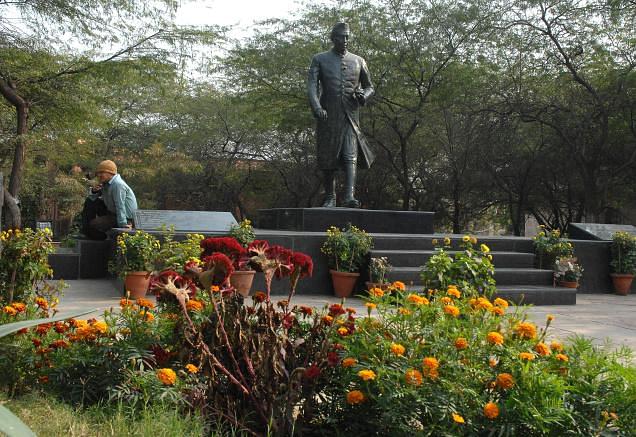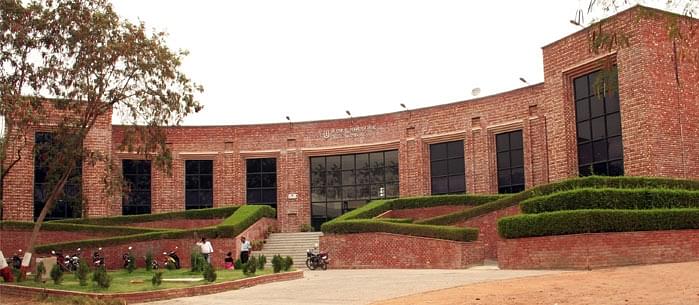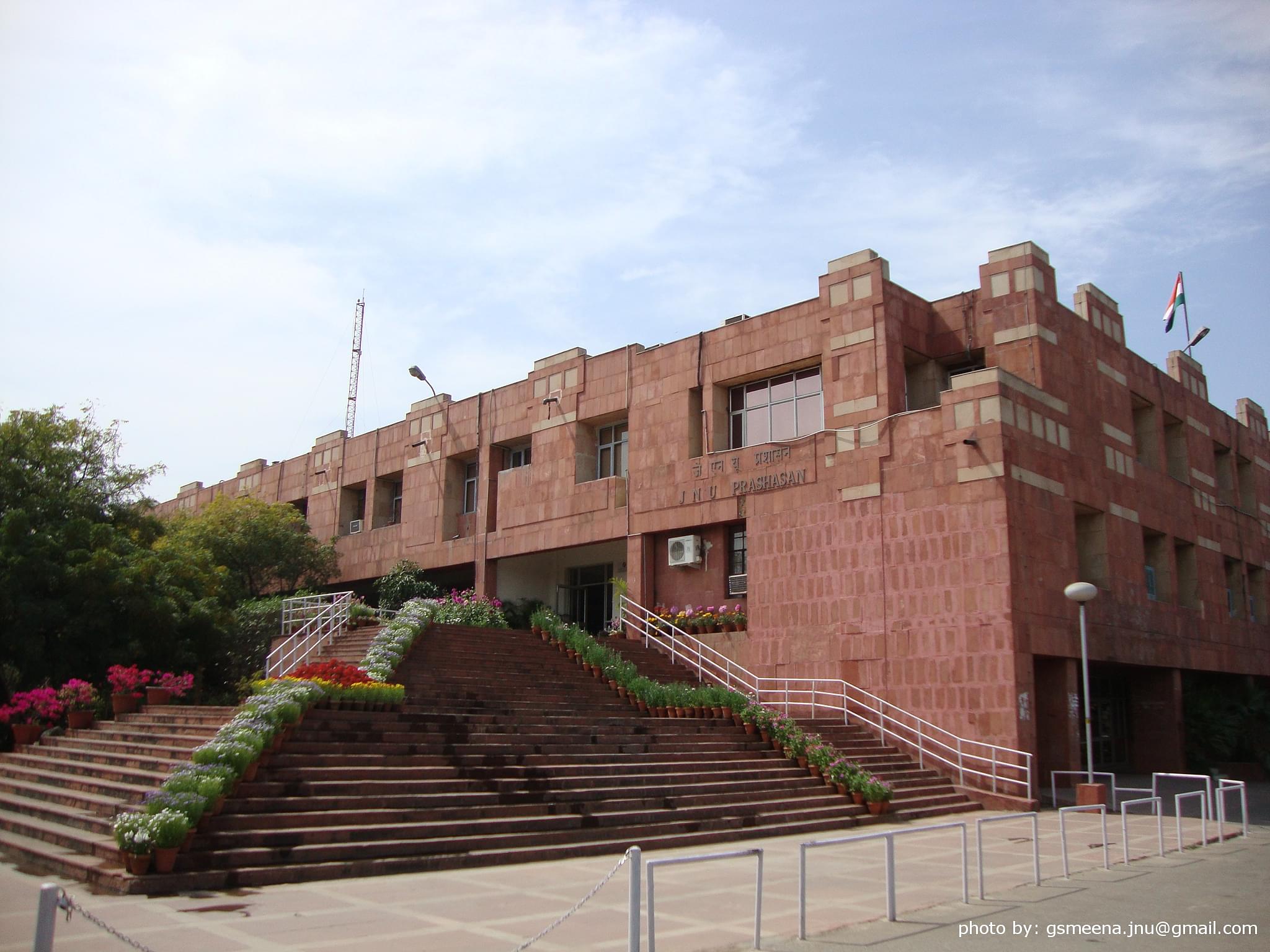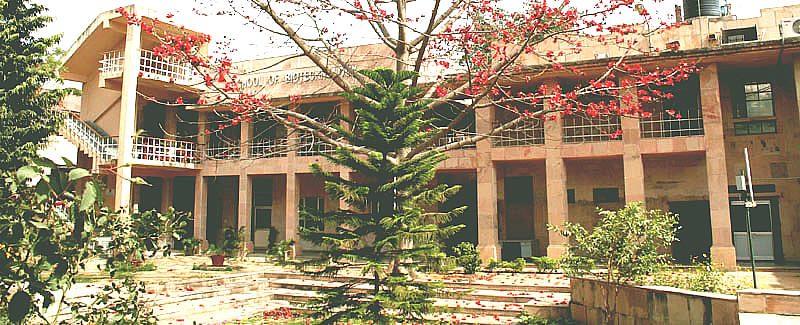![Jawaharlal Nehru University - [JNU]](https://images.collegedunia.com//public/college_data/images/appImage/25461_JNU.jpg?tr=h-240,w-1000,c-force)
| Year | 1 | 2 |
|---|---|---|
| Total Year Wise fees | ₹376 | ₹269 |
| Total Fees | ₹376 | ₹269 |
| Tuition fees | ₹216 | ₹216 |
| Admission fees | ₹5 | - |
| other fee | ₹155 | ₹53 |
View Previous Year Fees
| Year | 1 | 2 |
|---|---|---|
| Total Year Wise fees | ₹376 | ₹269 |
| Total Fees | ₹376 | ₹269 |
| Tuition fees | ₹216 | ₹216 |
| Admission fees | ₹5 | - |
| other fee | ₹155 | ₹53 |
JNU Cutoff 2025
JNU, CUET PG Cutoff 2024
The CUET PG 2024 round 1 cutoff marks for the Master of Arts [MA] (Economics) at JNU was 84 for the General category.
| Round | Cutoff (Cutoff marks) |
|---|---|
| Round 1 | 84 |
| Round 2 | 83 |
JNU, JNUEE Cutoff 2022
The JNUEE 2022 round 1 cutoff marks for the Master of Arts [MA] (Economics) at JNU was 61 for the EWS category.
| Round | Cutoff (Cutoff marks) |
|---|---|
| Round 1 | 61 |
| Round 2 | 59.3333 |
Do you think the Cutoff is wrong ? Report Here
JNU Master of Arts [MA] (Economics) Ranking
THE Ranking

Do you think the Rankings are wrong ? Report Here
Eligibility Criteria
Aspirants seeking to get admission to a full-time program must have a Bachelor's degree in any discipline under 10+2+3 pattern of education with at least 50% marks. Knowledge of Mathematics at 10+2 level is expected and will be tested for in the Entrance Examination
Entrance Exam
CUET PG
Course Details
Foreign Nationals
For the M.A. program:
(i) Tuition Fee:
- @ US $1900 per semester for courses in science disciplines;
- @ US $1500 per semester for courses in humanities and social sciences;
(ii) Incidental charges: @ US $ 250 per semester will be charged from both the above categories.
Master of Arts [MA] (Economics) Comparison
| JNU | Delhi School of Economics, Delhi University | Delhi University | BHU | Jamia Millia Islamia University | |
|---|---|---|---|---|---|
| Reviews Rating | - | - | - | - | |
| Cost To Study | Total Fees ₹645 (2 Years ) | Total Fees ₹17766 (2 Years ) | - | Total Fees ₹10328 (2 Years ) | Total Fees ₹14400 (2 Years ) Hostel Fees ₹12550 |
| Ranking | # Ranked 301-400/400 by Times Higher Education Arts Ranks | - | - | - | # Ranked 21/50 by The Week Arts Ranks |
| Highest Salary | ₹3300000 | ₹2650000 | ₹4480000 | ₹12000000 | ₹2500000 |
| Average Salary | ₹1100000 | ₹1450000 | ₹1180000 | ₹2313000 | ₹900000 |
| General Course Details | Duration - 2 Years Course Offered - Full Time Total Seats - 96 Mode - Full Time Degree Type - On Campus Course Level - Post Graduation Course Credential - Degree | Duration - 2 Years Course Offered - Full Time Total Seats - 0 Mode - Full Time Degree Type - On Campus Course Level - Post Graduation Course Credential - Degree | Duration - 2 Years Course Offered - Full Time Mode - Full Time Degree Type - On Campus Course Level - Post Graduation Course Credential - Degree | Duration - 2 Years Course Offered - Full Time Mode - Full Time Degree Type - On Campus Course Level - Post Graduation Course Credential - Degree | Duration - 2 Years Course Offered - Full Time Total Seats - 50 Mode - Full Time Degree Type - On Campus Course Level - Post Graduation Course Credential - Degree |
| Eligibility | Graduation with 50% + CUET PG | Graduation | Graduation | Graduation | Graduation |
Course Finder
Search from 20K+ Courses and 35+ Streams
Popular Streams:
JNU: 4 Answered Questions
What are the placements after an MA in economics from JNU?
Economics offers many career options. Having a master’s degree in Economics from JNU will offer you many placement opportunities. Here are some of the career paths that you can choose after the completion of your degree.
- Quite a few companies visit the JNU campus every year to recruit students in data analyst and research analyst profiles. The average package offered in the placement drive is 9 LPA. However, not all students get placement offers. So, you want to work in a data incentive profile, it’s better to go for institutes like DSE, ISI, IGIDR, etc.
- Many students chose to pursue higher education. You can do M.Phil or integrated M.Phil-P.hD. JNU is a great option for pursuing higher studies in Economics. After completing your degree, you can teach and continue research.
- You can appear for civil service examinations.
- If you want to work in research domain but are not necessarily willing to pursue a P.hD, you can join think tanks. But you should keep in mind that getting into credible think tanks is not easy.
- You also have the option to take examinations for RBI and EXIM Bank. A background in Economics is a must for these examinations.
No matter what you choose to do, the competition is quite hard. So, you will have to work accordingly.
How do I crack JNU MA economics with specialization in world economy entrance without coaching

Self-study is the best tool to score well in examinations. Since JNU is the dream institute for most students, the competition level is very high, but you can crack it with strong determination and dedication. If you are good at the basics and theories that you studied at graduation, then half the job is done. Try to solve the previous year's question paper, which is available on the official website of JNU.
Some important topics are listed below
- Macroeconomics
- Microeconomics
- Econometrics
- International Trade
- Statistics
- National Accounting
- Profit Maximization
Strive hard and give your best.
How do I go about choosing between JNU and DSE for MA Economics?
Both the courses are distinct from one another.
At DSE, they train you rigorously in mathematics. And this is an important part of your journey but that is about the only part DSE focuses on. Economic theory at DSE will give you an edge over a lot of other institutions and get your foot in the door inside a lot of big names in finance.
Now coming to JNU, they don’t give a lot of emphasis on Maths but they make sure you read a lot more than you will read at DSE. This means you build a well-rounded view of the world and how economies function. This is a good thing as it will help you very much in mainstream research and things like journalism where you need to know a lot of things.
Also, at JNU reading thoroughly is a part of the curriculum which is not the same in DSE. With the curriculum at JNU, you will discover different schools of thought and learn to think for yourself.
Overall, choosing JNU will be better.
How should I prepare for MA Economics entrances for JNU and DSE in 45 days?

Preparing for MA Economics entrances for JNU and DSE will need immense concentration and dedication. You will need to prioritize to keep everything in balance. Here are some things you can go through:
- The core subjects include Mathematics, Statistics, Microeconomics, Macroeconomics and Econometrics. Select any 3 out of these 5 subjects which you feel are your strengths.
- Revise the basics from your graduation notes and practice past year exam papers.
- For the subjects you feel you are weaker in, revise the basics. Do not spend too much time on them.
- Practice questions from past years.
- Analyse the topics in which you are lagging behind and try to read those in detail. You can also skip some topics too.
- For Statistics, focus more on Permutations and Combinations, Probability, Discrete and Continuous Random Variables.
- DSE requires a mathematical approach and proper concentration. So practice past year papers and do not forget concepts.
The books you can refer to are: Dornbush and Blanchard for Macroeconomics. Hal Varian, Nicolson, and Pyndick for Microeconomics. Hammond and Chiang for Maths. SC Gupta and Miller for Statistics and finally Gujarati for Econometrics.
JNU Latest News
Education Ministry Reveals Only 212 Teachers Hired at Central Universities during ‘Mission Mode’

JNU UG Admission 2023 to be Based on CUET UG Scores; Check Details Here


Discover More Colleges
![Jamia Millia Islamia University-[JMI]](https://images.collegedunia.com//public/college_data/images/appImage/25460_JMI_APP.jpg?tr=h-111.44,w-263,c-force)

![Lady Shri Ram College for Women - [LSR]](https://images.collegedunia.com//public/college_data/images/appImage/14918218951444135101LSRCNEW.jpg?tr=h-111.44,w-263,c-force)





![Dyal Singh College - [DSC]](https://images.collegedunia.com//public/college_data/images/appImage/1239_DSC_New.jpg?tr=h-111.44,w-263,c-force)




![Jawaharlal Nehru University - [JNU]](https://images.collegedunia.com//public/college_data/images/logos/14915691701461581754JawaharlalNehruUniversitylogo.jpg?tr=h-71.17,w-71.17,c-force)













![Jawaharlal Nehru University, School of Biotechnology- [SBT]](https://images.collegedunia.com//public/college_data/images/logos/1487056401jnusarkarijobs.comprojectassistant.jpg?tr=h-72,w-72,c-force)
![Atal Bihari Vajpayee School of Management and Entrepreneurship -[ABVSME, JNU]](https://images.collegedunia.com//public/college_data/images/logos/1551269882logo0.png?tr=h-72,w-72,c-force)






![Acharya Bangalore B-School - [ABBS]](https://images.collegedunia.com//public/college_data/images/logos/1617781066Logo.jpg?tr=h-72,w-72,c-force)
![Banaras Hindu University - [BHU]](https://images.collegedunia.com//public/college_data/images/logos/1434627772BHU.jpg?tr=h-72,w-72,c-force)
![Sri Guru Tegh Bahadur Khalsa College - [SGTB]](https://images.collegedunia.com//public/college_data/images/logos/14920633101.jpg?tr=h-72,w-72,c-force)
![Dyal Singh College - [DSC]](https://images.collegedunia.com//public/college_data/images/logos/13957264961.png?tr=h-72,w-72,c-force)


![Dayalbagh Educational Institute - [DEI]](https://images.collegedunia.com//public/college_data/images/logos/1394441747Dayalbagh Educational Institute.png?tr=h-72,w-72,c-force)
![Panjab University - [PU]](https://images.collegedunia.com//public/college_data/images/logos/15040653671413791580PunjabUniversityChandigarhPU.jpg?tr=h-72,w-72,c-force)

![Symbiosis Institute of Media and Communication - [SIMC]](https://images.collegedunia.com//public/college_data/images/logos/1606977811logo.png?tr=h-72,w-72,c-force)

![Acharya Nagarjuna University - [ANU]](https://images.collegedunia.com//public/college_data/images/logos/15087556111394863761AcharyaNagarjunaUniversity.png?tr=h-72,w-72,c-force)
![St. Xavier's University - [SXUK]](https://images.collegedunia.com//public/college_data/images/logos/1700554855SXUK21.png?tr=h-72,w-72,c-force)
![Welcomgroup Graduate School of Hotel Administration - [WGSHA]](https://images.collegedunia.com//public/college_data/images/logos/16168385612430132411983749635956556413114985254385170n.png?tr=h-72,w-72,c-force)



Comments